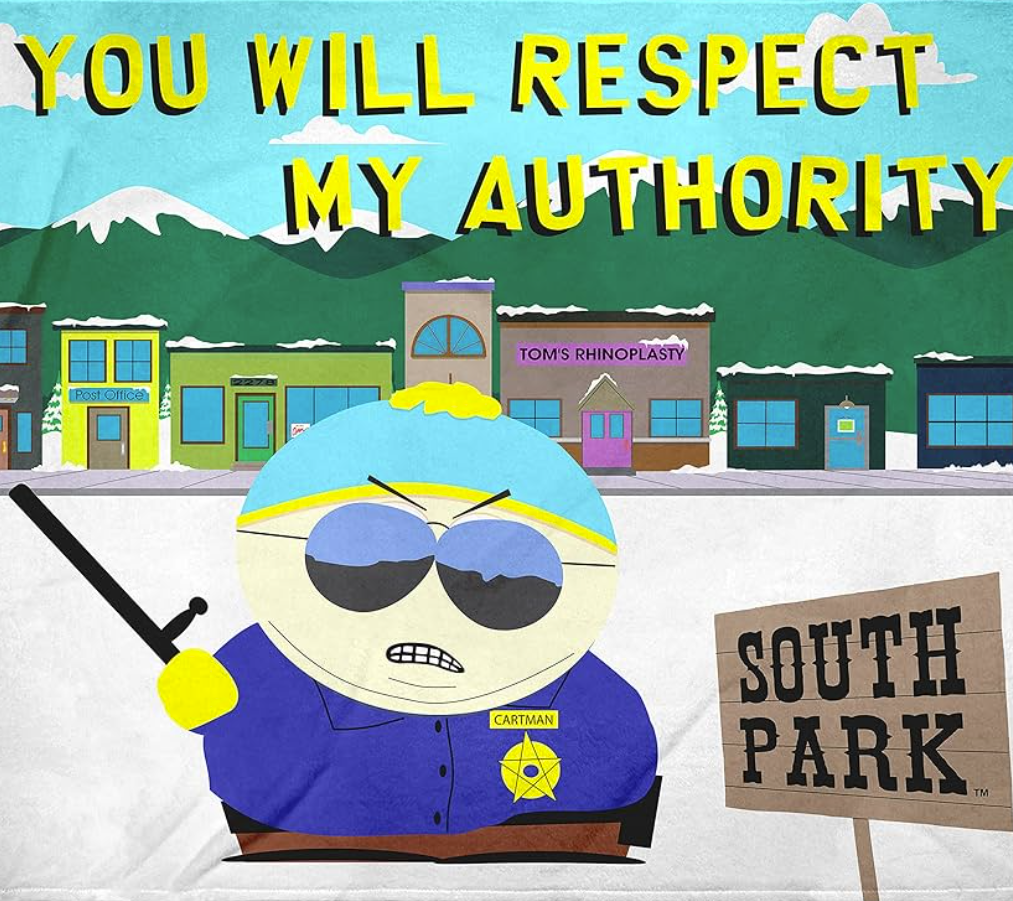

7 psychological hacks to be more influential in your life
One of the most impactful books on psychology, influence and persuasion science is Robert Cialdini's 'Influence' . And if you even have a passing interest in psychology, chances are you've heard of it. Ask any hotshot marketing guru, salesman or coach for reading recommendations and they'll probably recommend it.
The updated 'Influence' dives into the 7 core motivators of human behavior, explaining the principles and psychological levers that compel us to say 'yes' to somebody....even if we don't really WANT to! And it isn't just for marketers or salespeople. Everyday people like you and I can benefit from knowing these triggers, because it allows us to recognise and defend ourselves when they're being weaponised against us (and trust me, once you learn them, you'll see them wherever you look!)
In this article, we're going to go deep into each of the principles laid out in this pop psychology classic, giving you an explanation of just why each principle works, as well as a powerful real life example and suggestions for integrating them into your own life to become a more (ethically) persuasive and dynamic individual!
1. Reciprocity

What's the big idea?
Have you ever received an act of kindness and felt the awkward pressure to repay it? Perhaps somebody has made a conscious effort to do something for you, and you want to return the favour?
Well, that's the first principle at play. It's called 'reciprocity'- and basically, it's the idea that human beings don't like being in each others' debt- that uncomfortable feeling of 'owing somebody' can be so strong that it propels us into making choices that we didn't reeeaaallly want to. Maybe you signed up with that PT you didn't really like because of the free trial? Perhaps you paid for an overpriced jet ski ride on holiday because the guy carried your bags, usually without your permission! (classic)?
Studies show that waiting staff that bring a small 'treat', or a personal touch with the bill got up to 23% bigger tips! So you see, reciprocity is so powerful it'll make you buy that software that gave you a free trial, or give a 5 star review to the Uber driver that played your music- the examples are endless!
So how can I use it?
Simple- become a more generous version of yourself. Not with any obvious agenda- giving to get is sneaky and makes people not trust you. Instead, look for small 'no big deal' type situations.
- Stay behind 10 minutes to help a colleague
- Agree to reschedule a meeting to help a client out.
- Do one of your partner's chores (without them hinting at it!)
Generosity is it's own form of power. big corporations know this, and now so do you.
2. Commitment & consistency
What's the big idea?
Salesmen call this the 'foot in the door' technique, and it's very powerful. The idea is that people feel pulled to act in a way that aligns with their commitments or perception of themselves. It's especially powerful if you've made your commitment publicly.
Big business knows the power of that initial 'yes'. They spend BIG money on getting that foot in the door, because they know it leads to a bigger yes- AKA, a sale. I was the victim of this once when I was younger, when I was approached by a con artist with a sob story. He asked me whether I lived outside the home we crossed paths by (which should have tipped me off) before asking to use my phone, giving me a nonsense story about needing to pick up his kids from grandma's house miles away.
That was his foot in the door, and he probably knew he had me in that moment.
'You seem like a very kind, generous man' he flattered.
10 minutes later I was withdrawing $30 so this smooth operator could get a taxi to his non-existent children's house.
It was only when I got to work 30 minutes later I had the realisation I'd been played. And the guy was so smooth that I couldn't bring myself to be angry.
World famous hypnotist Paul Mckenna tells a story in his book 'change your life in 7 days' about how the Chinese used this principle so well in brainwashing American POWs against their home country during ww2 that by the end of the war, despite being free to go, many soldiers chose to stay at the camp.
Thank god I was only out $30.
So how can I use it?
Stop asking for so much. Whether it's from a partner or a business prospect. Start small, let it build. Make your requests so insignificantly small that it would almost be rude to reject you.
- If you lead a team, don't set 'deadlines'-get agreements, for example: 'can we all agree to having (project/task) done by Wednesday?'
- The old trick of getting your date to touch you first before going in for the kiss is a prime example here!
- Affirm people's positive sense of identity, just like the con artist eg: 'You're a very (x) person aren't you?
3. Social proof

What's the big idea?
This principle is probably the most widely known from 'Influence', at least instinctively. Basically, we tend to look to other people for our cues on how to behave, especially in unfamiliar situations.
Now cast your mind back to the dark ages of 2020, and a certain virus was swarming planet Earth. Somehow, someway, a global population of nearly 8 BILLION people were convinced to stay at home. The whole world it seemed, stopped overnight. How?
Because most people did what they were told. And in a time of great fear, most people went with the crowd. We're just wired that way- societal influence is a real thing, and you can read this classic study for proof!
So when you consider the study above had just 15 people. When the entire WORLD is behaving a certain way, it's not hard to imagine the pressure to conform. Now suppose, maybe the fashion industry knew this little trick? Or advertisers?
So how can I use it?
Are you known to a group of people? Perhaps you have a team sport you play, or a hobby where you're 'one of the gang'. We like people that know the people we know, its the whole reason why we take recommendations from friends who 'know a guy' vs hiring total strangers.
- Have a client meeting? Bring them somewhere the waiting staff know your name- bring them into YOUR world.
- When you introduce your wingman/winggirl, make a point about how much everybody loves them
- Your baby won't eat? Always make sure they see mom and dad enjoying their food!
- Freelancer? ALWAYS collect testimonials!
4. Liking
What's the big idea?
Simple- we're more receptive to people we enjoy being around. Easier said than done though. There's a whole industry around being a more attractive, likeable person. It isn't a hard science, and the simple truth is not everybody WILL like you. But there ARE some general pointers, and if you want a classic training guide, this book is a solid buy.
1) Think Keanu Reeves: The stories about what a decent, authentic guy he is are legendary. And though nobody's come out and explicitly said it, that mega love from fans has probably won him more than one role. Being yourself is a valuable currency, especially in a world where more and more people are performing and presenting.
2) Joe Girard is a name most of us won't know, but he was in the guinness book of world records as the world's #1 car salesman. When asked for his secret, he said: "I make it a point to find common ground with every single customer." We like people that are like us.
3) Back in the 80s, multibillionaire Warren Buffet bought a massive stake in the coca cola company. The finance world went into a frenzy, speculating that there was some secret information Warren had that the rest of the industry didn't. Warren had enormous credibility even back then, and could have played on the narrative to win big. But when asked, he simply said 'No secret. I just like the product'. He chose honesty over a mega payday. For that reason, he's one of the most liked, relatable billionaires, especially in an increasingly wealth-jaded society. Tell the truth- it's worth more than money.
So how can I use it?
This is a hard one to 'decode'. But do yourself a favor at the very least, and don't be deliberately unlikeable. Be respectful to your waitresses, don't try to deceive people, and be humble- the fastest way to lose somebody is to act as if you're better than they are.
- NEVER try to make somebody look foolish
- Be the guy that adds to somebody's sense of self, not take away
- Show real interest in people- practice curiosity!
5. Authority

What's the big idea?
People with authoritahhh authority aren't always the 'badge and gun' kind, though that is one type. Authority comes in different forms and context- whether it be positional (eg your local congressman, or the high school principal), your mom and dad or someone with a PhD in their field.
Whatever shape it takes, when human beings recognise it in another, we're more easily swayed. Picture for a moment you're walking down the street, and a 5 year old child runs up to you and says "you have 6 months to live!"
Aside from thinking the kid was a little creepy, you probably wouldn't think much of it right?
Now suppose that it was a medical doctor saying the same thing. It would DEFINITELY hit differently.
We assign legitimacy to 'experts', and you'll hear it as an argument tactic time and again in debates:
- 'The science shows that (xyz)'
- 'Experience has proven that (debatable point incoming)
- Experts all agree (insert brazen claim)
As well as 'educated' authorities, we're also more inclined to listen to lived experience- those that have 'been there and done it'. We can't discount a baseline of confidence some people have that just screams 'legitimacy' too!
So how can I use it?
This one has a trade off- be careful when you use it that you don't come off as that 'know it all' that nobody likes!
- Do you have a valuable skill, or something other people want to learn/know? Leverage it, ESPECIALLY in a workplace!
- Job interview? Be sure to subtly 'name drop' positive things established names in your industry have said about you (this is called 'endorsing')
- Giving advice/a sympathetic ear? Share a personal experience of how you got through the same issue- demonstrate your lived experience.
6.Scarcity
What's the big idea?
It's part of human nature to want what we can't have, or what's in tight supply. Marketers know this all too well- 'limited time only', 'when it's gone, it's gone!' etc etc. Dating advice tells us not to be too available, to not always be contactable. The universal law of economics is supply and demand- short supply=more demand (= higher price).
Scarcity is so powerful that there are people that live their entire lives trapped in this mindset. We're biologically wired to produce a 'fear response' when we think we're going to miss out. Advertisers and salesmen know exactly the right levers to pull that will produce that anxiety. I personally know somebody that put down a deposit on a house because the real estate agent told him that he had 3 days left before they would take another offer!
In the UK we have a running joke about a furniture store called DFS and their never ending 'clearance sales'. But... they're still in business!
So how can I use it?
- Run a business? Have a waitlist signup for your products/services (This is a 2 in 1- the scarcity ties in with commitment & consistency!)
- When scheduling dates/events with people, NEVER ask them when they're free. It communicates that you're too available. (This week I'm only free at x time, does that work?)
- Turn your phone off once in a while, especially while you're working. Give people a CHANCE to miss you. It isn't manipulative- you're busy.
7. Unity

What's the big idea?
The final principle, and the latest to be added to Cialdini's updated classic.
Unity goes deeper than just 'liking' somebody. It's about who and what we identify with. What community we deem to be 'our people', as well as their values. It touches on possibly our deepest social lever- the need to be one of the tribe.
Go to any soccer stadium around the world to see this in action. Regardless of race, age, or status you'll see men and women cheering (often crying) together. When the team wins, 'we win'.
Two Americans that cross paths on holiday more often than not hit it off. A pair of would be lovers discover they're both Virgos and it leads to flirtation. Politicians appeal to 'we' as a nation to galvanise voters.
There's 1000 examples but one simple truth. Like attracts like, and we all want to be part of something.
So how can I use it?
- Leading a team? use 'We' language, not 'I/you' language (that goes double if your team member has made a mistake)
- Always look for positive things you have in common with people (You went to my university? No way!)
- Celebrate your partner's wins. Their wins are 'our wins'!


